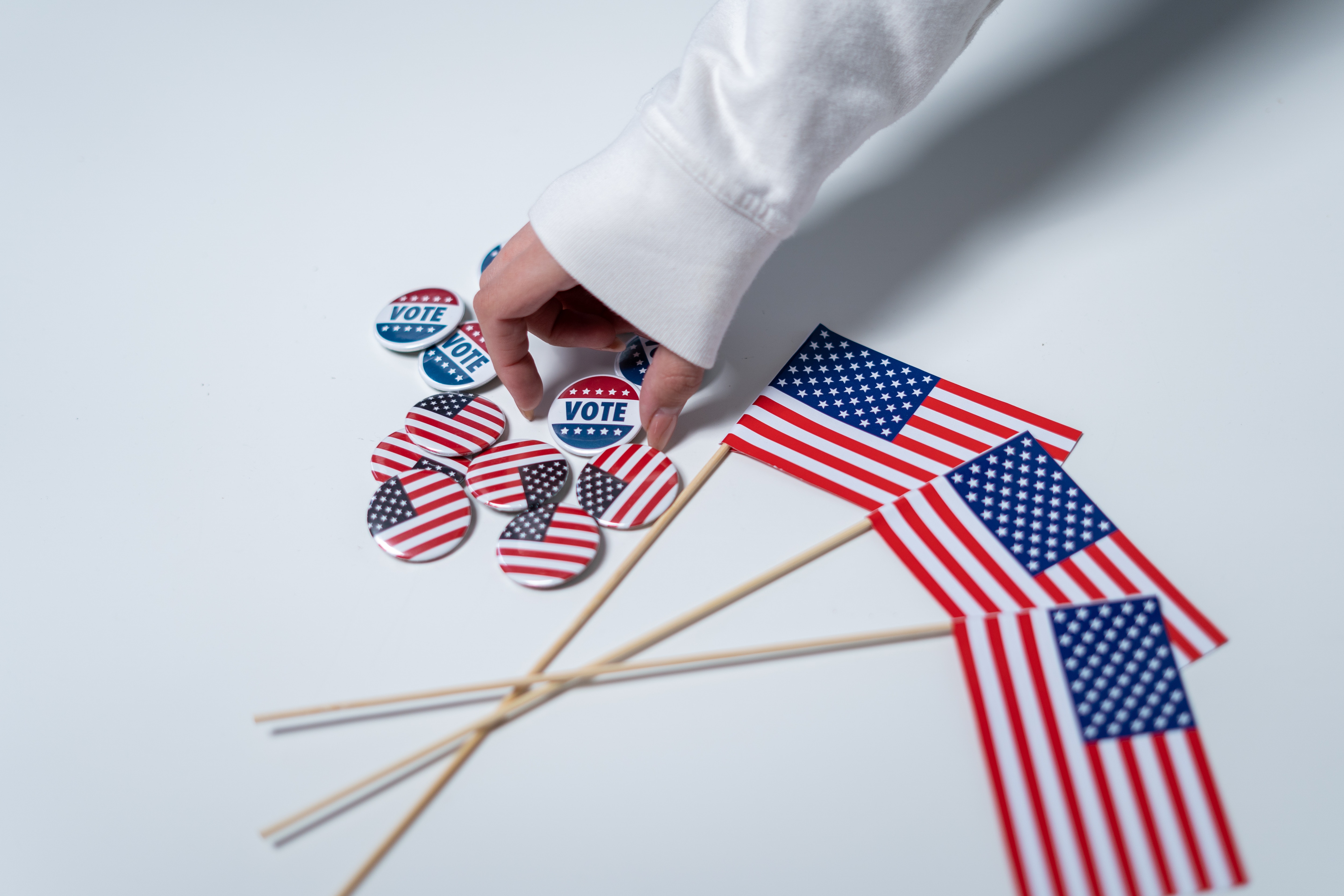
Prompt Images
Hey. Friend.
So, I’ve heard it’s apparently taboo to talk about politics.
And I know it’s a really polarizing time in history, the nation is divided, and we’re all really feeling anxious about the stakes of this moment.
But I don’t understand why that means we can’t talk about politics. If anything, we should be talking MORE about them. Not the kind of “talking” where I’m screaming at you about why you’re wrong and you’re insulting me because I’m a blockhead.
That’s very obviously not going to accomplish anything productive.
But hear me out: I don’t mean to be some naïve Pollyanna, but we should be sharing our ideas and experiences so we can understand each other. We need to stop listening to political strategists’ talking points, whose job it is to win for their side, not for collective success. We need to ignore the official party line and carefully curated messaging platforms.
On a deeper level, we need to identify our shared values so we can know what the hell this country stands for anymore.
Sadly, we very obviously can’t trust the people we elect to do the brokering, negotiating, cooperating, and legislating. They’re so worried about getting voted out of office or stepping out of favor with their party that they are just basically predictable self-interested robot pawns. I know I sound like the guy wearing a System of a Down hoodie and working at an indie book store, but to be fair, that guy has a fucking point (and really good book recommendations).
With very few exceptions (Katie Porter, I’m looking at you, you magnificent champion) the public officials we elect don’t actually work for us: the people, the voters, their constituents. But I haven’t forgotten—and neither should you—that we are their employers: We hire them with our votes and pay them with our tax dollars. And if we don’t hold them accountable, then we’re really bad bosses.
Currently, they are more inclined to work on behalf of the special interests that fund their campaigns than for the constituents who elected them. They work for their party leaders who give them influential committee postings and a chance to climb to higher office.
Many of them work to save their own asses, so they don’t always think about yours.
It’s not entirely their fault. Our political system—particularly at the federal level—has become a zero-sum game where if you’re not winning, you’re losing. There’s no compromise. There’s no cooperation. And that just doesn’t work in a country where people are allowed to have and express differing opinions. Or a country where regional demands require different policies to ensure a prosperous people.
Do I think I know the first thing about living in a small town in Arkansas? No, I really don’t. I only know one person from Arkansas (and he now lives in D.C.), so I’d love to hear more about what it’s like for Arkansans. Please, tell me more about it.
Similarly, does someone from a small town in Arkansas know the first thing about what it’s like to live in a city like D.C.? No. They don’t. (Except for that Arkansan I referenced, who has lived in both. He’d be an expert on this very narrow topic.)
So—radical idea—before I go calling someone an idiot or telling them they’re wrong about X, Y, and Z, I should probably understand what created their personal values and political beliefs. Then, I should probably get equal airtime to talk about my values and beliefs.
We will agree on many things. We will disagree on many others.
Maybe vehemently or irreconcilably. But civil discourse allows for that. And those shared values? That’s what defines a country’s culture. Right now, our national culture is fear and loathing. It’s anger and middle fingers. It’s screaming and interrupting. It’s poison.
We need to get back to listening.
That’s everyone: me, you, your rude uncle, your uninformed coworker, your irrational neighbor, and the news broadcasters who make their living being snarky, opinionated hacks.
It’s fucking SAD, man. We all know it. We all look around at the people we elected, and we’re all really disappointed. Because the system is broken. And even the officials we like—the public servants who are truly doing the good work on behalf of their constituents—are trapped by a system that leaves them impotent.
I know listening sounds too simple and idealistic to work, but in the end, this retributional bullshit hurts everyone. So We the People just need to do a better job communicating what we believe and value—which hopefully includes “a government that serves its constituents first”—through our dinner conversation and our votes.
So, if it’s impolite to talk about politics, well, then I’m about to be downright vulgar.
Because I’m not going to sit here and nosh cucumber sandwiches as the great American experiment falls to crumbs. This is it, folks. The time is now.
Democracy requires an educated, informed, and engaged electorate. That means you might have to have some awkward conversations with your friends, family, and neighbors. It means you and I might have to have a heart-to-heart where you call me a nanny liberal and explain why you don’t want the government to prohibit you from drinking a Big Gulp.
Because if we normal-ass folk don’t talk about politics, then these nefarious power-hungry idiots have free reign to make all the bad choices they want. And then they take office for decades, re-draw the districting lines to consolidate power, and leave us to rot.
If we don’t talk about politics—if we only ever have light conversations about puppies or Kardashian vacations or the local sports team—the entire system fails. We all lose.
So, I’ll start.
I believe that policies that aim to expand and lift the middle class are better for the economy and country.
I believe that the District of Columbia (home to 670,000 United States citizens) should be a state, with full representation in Congress.
I believe that electoral districts should be drawn scientifically and logically, not by state legislatures of either party.
I believe that every woman should have full control over her body, and that we should trust her to make the best decisions about her health and wellbeing.
I believe that quality public education should not only be available to certain kids in certain geographic areas where the tax base is high, but to all kids, even if their parents don’t make as much money or their skin is a different color or it requires reallocating resources.
I believe that kids of all genders should be able to play sports together because it’s fun, humanizing, it teaches great lessons, and is good for the body and mind.
I believe not paying your taxes is one of the most unpatriotic things you can do.
I believe that the gun crisis is out of control and we must pass reasonable, common sense public safety measures.
I believe that democracy is worth saving.
These things probably don’t surprise you. But perhaps if I start with my values, you’ll understand what’s important to me and why. So, now it’s your turn. If it’s impolite to talk about politics, I’ll ask it a different way.
What’s important to you?



